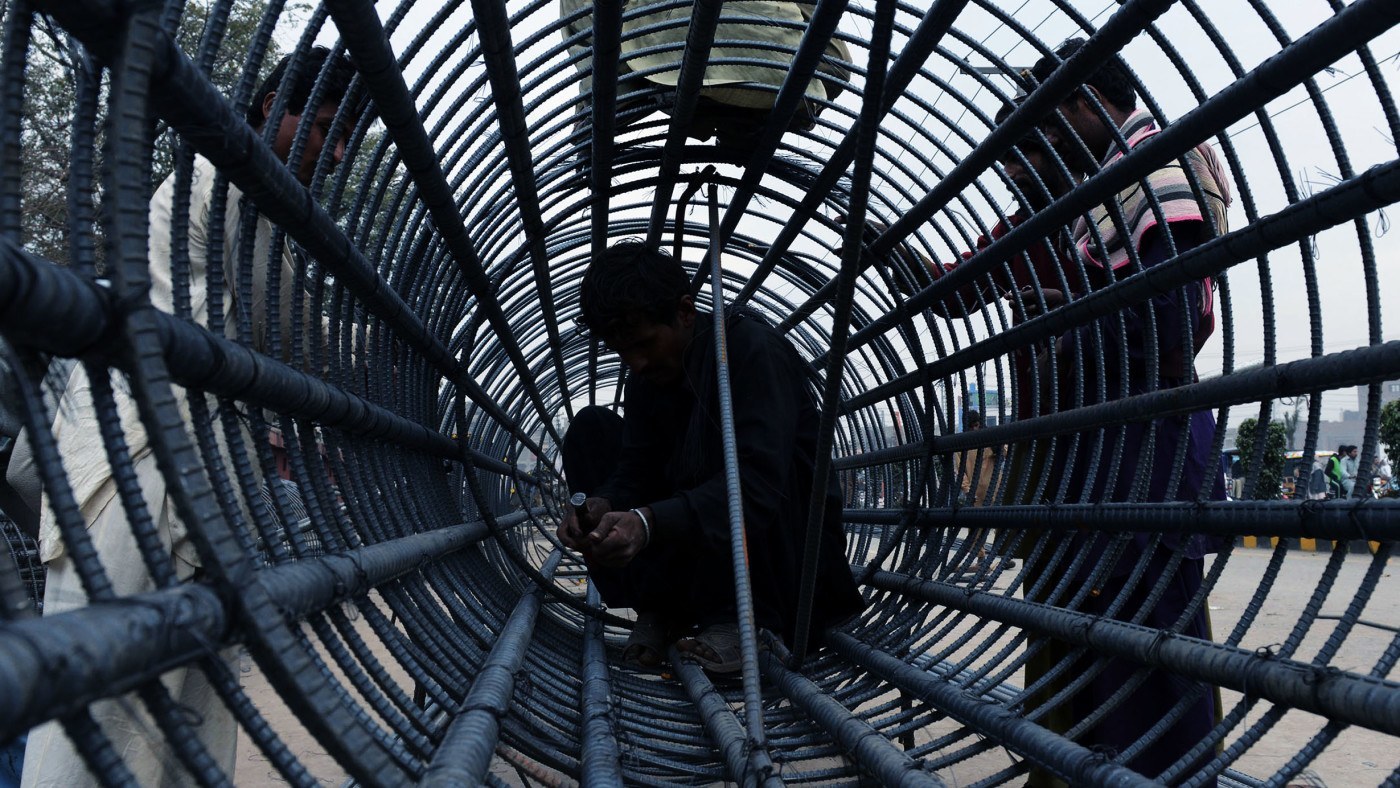There are two very different assessments about Pakistan’s recent economic health — and both appear poles apart.
The first story is that of Moody’s and Fitch credit rating reports, IMF’s approval and Forbes’ famous article ‘Pakistan is doing well, has come out of crisis, ready to take off.’
Additionally, there are factors such as the $46-billion China Pakistan Economic Corridor, which has started flowing into the country and certainly improving investment prospects.
These positive accounts, which are not incorrect, have put our economic managers in a state of deceptive comfort.
The other side, the more skeptical view of the economy, is usually found in the long-term structural and institutional assessments. Take the World Bank’s Doing Business report, the World Economic Forum’s report on state of competitiveness, or the more recent Economic Freedom of the World report issued by Fraser Institute in Canada.
All these reports give a big thumbs down to Pakistan’s economic managers. For them, the country’s economy is not competitive, and is largely in the clutches of the government, which itself is not ready to reform its governance practices. Worse still, these reports indicate a decline over 2013-2015.
The Fraser’s Institute report ranked Pakistan at 124 out of 167 countries — the same place it earned in 2013. The 2015 Doing Business report of the World Bank scored down Pakistan from 107 out of 185 countries to 128. The World Economic Forum’s Global Competitiveness Index brought Pakistan down to 129 in 2014-15 from 124 in 2012-13.
Pakistan’s federal economic governance is distributed across 10 ministries. These include Ministries of Finance, Planning, Commerce, Industries, Textiles, Communication, Railways, Information Technology, Petroleum & Natural Resources, and Water and Power.
To unlock Pakistan’s own economic potential, these 10 economic ministers must deliberate on a reform agenda. What should be their agenda? How can Pakistan improve its ranks in the comity of nations? Undertake energy pricing reforms (which is not exactly what IMF’s cost driven prescriptions suggest), taxation reforms (which is not about tax to GDP ratio, but rather making taxes easier, fairer and flatter), bring down tariffs across board (and shun SROs), bring down revenue deficit to zero, divert commercial credit to private sector, and help businesses formalise.
We need a fundamental transformation if we want Pakistan to move up the ladder of economic development. All institutional assessments of the economy are very clear about what needs to be fixed. Re-set policies, redefine processes. State roll back is direly needed. However, the indications are contrary.
The government’s new trade policy fails to introduce reforms. The emerging auto policy is no better. The planning commission has not come up with a clear growth strategy, though it does have a Vision 2025 as a useful overarching document.
The reform discussion is something IMF, Forbes and Moody’s either deliberately miss or gloss over. They are generally happy with a government that improves current account deficits, reduces fiscal deficits, and improves the external accounts. Their prism is largely that of a lender, both of a government or corporate type, and not of a business investor.
While Pakistan would benefit from Chinese investment and a stable currency on the back of rising reserves, it will continue to look for similar external factors for economic revival.
More than anyone else, the Prime Minister Nawaz Sharif must see economic reforms as the only strategy for growth, an initiative which he himself boldly took up 25 years ago.


